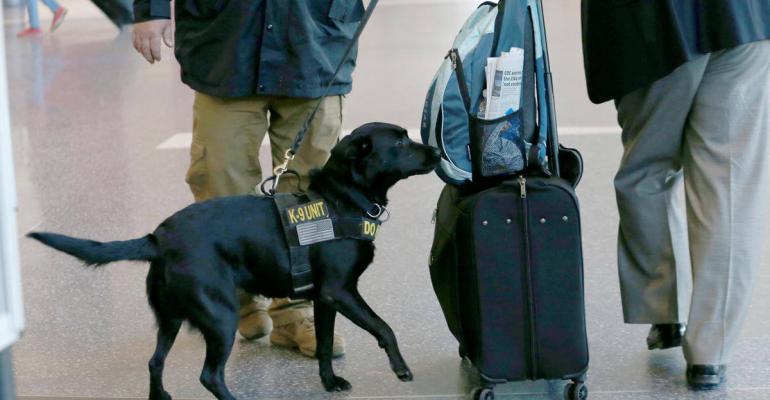Homeland Security Secretary John Kelly has announced that new aviation security measures will be required of international airports with direct flights to the United States in the next 21 to 120 days in order to avoid a total ban on laptops in aircraft cabins. At a press conference today Kelly said that increased scrutiny of electronic devices was necessary because of the threat of terrorism. He said, “Make no mistake: our enemies are constantly working to find new methods for disguising explosives, recruiting insiders, and hijacking aircraft.”
Some of the new screening requirements were not communicated to the public for security reasons, but others included better vetting of airline employees, increased use of K9 sniffer dogs and explosives detection equipment, and enhanced screening of airline passengers.
Last month, a survey by the Business Travel Association found that a majority of respondents were likely to reduce trips if the laptop ban is introduced.
At the press conference Kelly announced that, “It is time that we raise the global baseline of aviation security." Although airlines are expected to carry the cost for the enhanced security measures, it is likely that will be a more popular approach than depriving lucrative business customers of their laptops on long-haul flights. There is also some controversy over the safety of laptops being kept in the cargo hold.
The Department of Homeland Security does not have jurisdiction over the approximately 280 airports that have direct flights to the United States, but they could introduce financial penalties or carrier-specific laptop bans for those airlines that do not comply with the new measures. The good news is that airlines flying to the United States from one of the 10 airports in the original laptop ban, including Egypt, Saudi Arabia, Kuwait, Qatar and Turkey, can now be exempt from the list if they introduce these stricter security.
Travel Association Executive Vice President for Public Affairs Jonathan Grella issued the following statement on the Department of Homeland Security's new security requirements for all airports with flights into the U.S.:
"It is imperative that travel remain safe and viable. We're glad stakeholder engagement is progressing, as these matters are complex, the stakes are high, and we want to be a constructive partner on security. It's not just the travel and tourism industry that's affected by any new restrictions—it's our entire economy.
"Travel is the fundamental artery of trade and commerce for our country—and that artery is beginning to clog as a result of both perceived and actual security hurdles for travelers. We cannot push our travel system to the limit, or risk the unintended consequences of too heavy a burden on airports, airlines, and travelers. We must ensure security at all costs, but our government also has an imperative to keep trade and commerce flowing.
"Once again, we urge the Trump administration to offset any limiting security messages and policies with a serious and sustained welcome message to legitimate travelers. The world must hear that we are closed to terror, but open for business."





